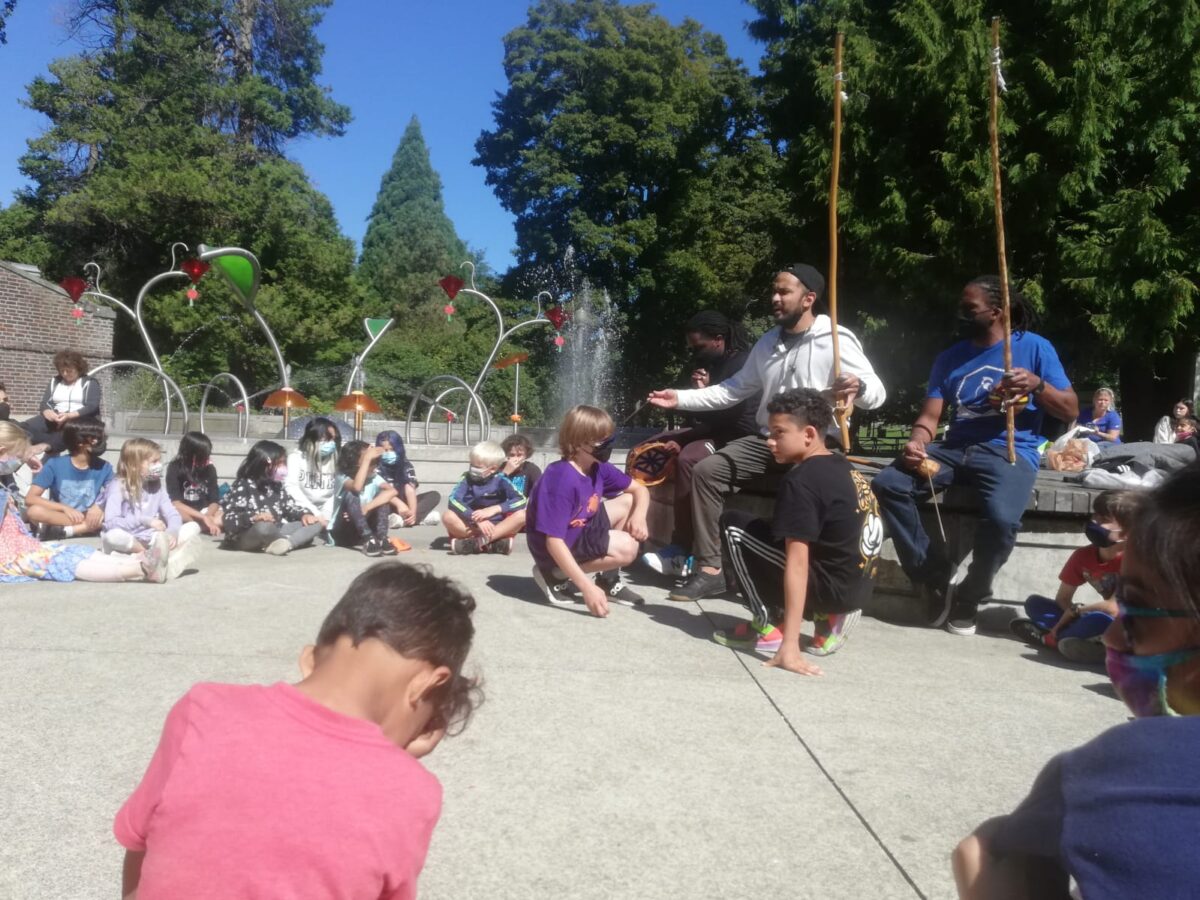I was born in Rogers Park, Chicago, in 1985 to East Indian immigrants. Rogers Park at that time was home to predominantly the Latino and Black community and was known as “the projects”. Growing up with the notorious street gang, the Latin Kings and Queens, I learned only street smarts and the harsh realities of life. My friends were killed, my brother arrested, another friend kidnapped and never found, and my father beaten by rival gang members. My father passed away when I was 12. On the verge of becoming homeless, my elder sister moved my mother and me to Seattle. She had been training in Capoeira, the dance-fight blend of African-Brazilian origins. I quickly became addicted and dedicated myself to my new-found passion. It was in the Capoeira academy where I learned focus, discipline and respect for my fellow humans. Following the Trade Center attacks on 9/11, I suffered bullying and racial discrimination and was expelled from Nathan Hale High School. This caused me to concentrate even more on Capoeira. I moved to Brazil to learn from the Master of Masters, Mestre Norival (Nô) Moreira de Oliveira. From Mestre Nô, I learned the true Capoeira. Over the years, I have lived on and off in Brazil with my teacher. At the age of 19, I began giving Capoeira back to the community. I have taught the art of Capoeira all over the world, from Paris to Hyderabad to Maputo.
Capoeira has helped me in so many ways. I probably would have never learned how to read, write or multiply had it not been for the mind- and body-clarifying power of Capoeira. As a teenager, it gave me the confidence and strength I needed to navigate so many difficult situations. Within each movement and song and tradition, there is a life lesson that can be applied to many aspects of life. By practicing Capoeira, I feel a deep connection to its originators: Africans enslaved in Angola and Brazil who developed Capoeira as a form of self-defense, despite its being outlawed by the imperial Portuguese ruling class. The primary lesson to be learned is to be proud of who you are, and to never give up. Students of Capoeira learn to move fluidly. They practice self-control, mind and body focus, critical thinking, balance, music, rhythm and using their hands to maintain, repair, and wood-burn traditional Brazilian musical instruments. From my personal experience, I know that this artform can help youth who are going through difficult times by improving life skills and confidence, and reducing delinquency. It is my deep honor and pleasure to continue my mission to help youth discover themselves through Capoeira.
– Mestre Syed
